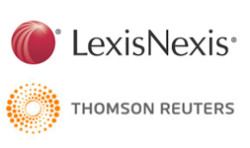Top Class Actions’s website and social media posts use affiliate links. If you make a purchase using such links, we may receive a commission, but it will not result in any additional charges to you. Please review our Affiliate Link Disclosure for more information.

The class action lawsuit was filed in 2000 by a group of freelance writers who sought compensation for digital republications of their work in a number of databases, including those operated by The New York Times Co., Thompson Reuters Corp. and Reed Elsevier PLC. The writers argued that it was customary for authors to provide publishers the first right to publish their work for a fee. However, the copyright law made it unclear about the rights of publishers to further publish freelancers’ work, or to authorize others to do so.
U.S. District Judge George B. Daniels granted preliminary approval to a revised book scanning settlement and provisionally certified the class. The revised class action settlement will eliminate the $18 million cap in the potential award and will increase awards for freelancers whose work was not registered with the U.S. Copyright Office by 14 percent.
Background of the Electronic Database Litigation
In the 1990s, electronic databases such as LEXIS/NEXIS and Westlaw entered the market. According to the class action lawsuit, print publishers entered into license agreements that authorized these electronic databases to copy and sell the full text of the publications, including articles written by freelancers. However, the print publications typically failed to obtain the freelancers’ permission for the subsequent publication of their works in the electronic databases.
In 2001, the U.S. Supreme Court ruled that section 201(c) of the 1976 Copyright Act did not give publishers the right to republish freelancers’ work without their permission. Following this decision, the parties agreed to enter class action settlement negotiations and reached an agreement.
The 2005 class action settlement would have allowed for authors to receive different award amounts based on whether their work was registered with the U.S. Copyright Office. Ten authors of unregistered works objected and appealed the approval of the class action settlement, claiming that they were not adequately represented. However, the appellate court ruled that, because the authors of unregistered works could not legally sue for copyright infringement, it was appropriate that they received less from the class action settlement.
In 2005, the Second Circuit Court of Appeals rejected an original agreement between the parties, finding that authors whose work was not registered with the U.S. Copyright Office would be better represented in a subclass. That initial class action settlement agreement set a cap of $18 million and stipulated that awards to the unregistered authors would be cut if the cap was reached.
In 2007, the Second Circuit ruled that the district court lacked jurisdiction to approve the class action settlement because some of the freelancers’ works were not registered with the Copyright Office. That ruling was reversed by the Supreme Court in 2010, which determined that the district courts had subject matter jurisdiction over infringement claims of unregistered works.
In August 2011, the Second Circuit again vacated approval of the previous class action settlements, agreeing with the authors of unregistered works that they should have had separate legal representation in the settlement negotiations.
Revised Class Action Settlement Agreement
The parties agreed to the revised book republishing settlement in November.
Under the terms of the revised class action settlement, Class Members include “all persons who own a copyright under the United States copyright laws in an English language literary work that, at any time after August 14, 1997, was reproduced, displayed, sold and/or distributed in an electronic format” by any of the defendants without permission or authorization.
Class Members who submitted a claim by the Sept. 30, 2005 deadline will receive compensation based on the type and number of republished works. These works are classified as Category A, B and C works. Authors of Category A works will receive between $875 and $1,500 per work that was registered with the U.S. Copyright Office. Authors of Category B works will receive the greater of $150 or 12.5 percent of the original sale price of the subject work. Authors of Category C works, which are unregistered with the Copyright Office, will receive between $5 and $60 per work.
The Final Fairness Hearing for the book republishing class action settlement has been scheduled for June 10, 2014.
The plaintiffs are represented by Michael J. Boni of Boni & Zack LLC, Diana S. Rice of Hosie Rice LLP, A.J. De Bartolomeo of Girard Gibbs LLP, and Charles Chalmers of Allegiance Litigation.
The Book Republishing Class Action Lawsuit is In re: Literary Works In Electronic Databases Copyright Litigation, Case No. 1:00-md-01379, in the U.S. District Court for the Southern District of New York.
More information can be found at the Settlement Website: www.CopyRightClassaction.com.
UPDATE: A New York federal judge gave final approval to the electronic database republishing class action settlement on June 10, 2014.
ATTORNEY ADVERTISING
Top Class Actions is a Proud Member of the American Bar Association
LEGAL INFORMATION IS NOT LEGAL ADVICE
Top Class Actions Legal Statement
©2008 – 2024 Top Class Actions® LLC
Various Trademarks held by their respective owners
This website is not intended for viewing or usage by European Union citizens.















2 thoughts onBook Republishing Class Action Settlement Gets Initial OK
UPDATE: A New York federal judge gave final approval to the electronic database republishing class action settlement on June 10, 2014.
This is a nice summary of the current state of the settlement, but the headline is misleading because the copyrights in dispute involve magazine and newspaper articles, not books.